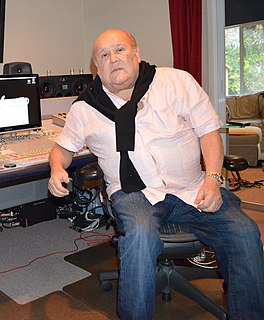
Astor Pantaleón Piazzolla was an Argentine tango composer, bandoneon player, and arranger. His oeuvre revolutionized the traditional tango into a new style termed nuevo tango, incorporating elements from jazz and classical music. A virtuoso bandoneonist, he regularly performed his own compositions with a variety of ensembles.

Roberto Gómez Bolaños, more commonly known by his stage name Chespirito, or "Little Shakespeare" was a Mexican screenwriter, actor, comedian, film director, television director, playwright, songwriter, and author. He is widely regarded as the most important Spanish-language humorist of all time.

Ibrahim Ferrer was a Cuban singer who played with Los Bocucos for nearly forty years. He also performed with Conjunto Sorpresa, Chepín y su Orquesta Oriental and Mario Patterson. After his retirement in 1991, he was brought back in the studio to record with the Afro-Cuban All Stars and Buena Vista Social Club in March 1996. He then toured internationally with these revival groups and recorded several solo albums for World Circuit before his death in 2005.
Pellín Rodríguez, was a Salsa singer. Rodríguez was a member of the musical group El Gran Combo and toured with them all over Latin America and Europe, gaining fame and popularity as a singer. In addition to his singing capabilities, Rodríguez had great comedic abilities and participated on comedy bits on various TV shows in Puerto Rico.

Esteban Benzecry is an Argentine classical composer.
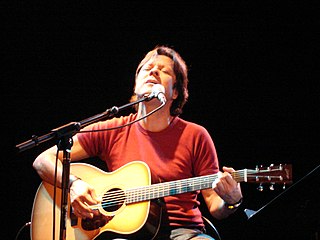
Hernaldo Zúñiga is a Nicaraguan singer-songwriter. He was born in Managua, but spent his childhood and adolescence in Masaya.

"Procuro olvidarte" is the name of the song that was the first international hit of the Nicaraguan singer and composer Hernaldo Zúñiga, the song was composed by Manuel Alejandro and Ana Magdalena, as the interpreter recognizes "based on a loving episode that I lived in thoses days", and because of his state of mind, he says, it was impossible for him to write it. This song put him in the international musical map, in a little time it reached the top of popularity and sales of Spanish language.

Lito Cruz was a prominent Argentine stage director and motion picture actor.
Juan Trigos is a Mexican-American composer and conductor, with a career of over 25 years.
La Palabra is a well-respected bandleader, singer-songwriter, pianist, record producer, and arranger, known for his versatile approach to music, particularly his invention of the Salsa romantica Latin music genre and his signature style of Afro-Cuban-influenced, sensual Latin jazz.
José Luis Rodríguez Vélez was a Panamanian composer, musical director, saxophonist, clarinetist and guitarist. He was the author of dozens of cumbias, boleros, pasillos, waltzes, dances and marches. He was a music teacher at the Escuela Normal Juan Demóstenes Arosemena, the Instituto Justo Arosemena, the Instituto Urracá, among others. He organized music festivals with bands and choirs, and music competitions. As a professional musician, he created and directed the Orquesta "El Patio", as well as choirs, other orchestras and musical groups in Panamá.
Carlos Barbería began his career in Havana, Cuba in the 1950s playing night clubs such as Monmatre and Tropicana. An early album titled "Carlos Barbería and his Orquesta "Kubavana" featured singer Yvette De La Fuente who performed with the band during the mid-1950s in Havana. "Besame Mucho", Consuelo Velazquez' classic bolero, sung and recorded internationally by many artists and which was later recorded by the Beatles and the 2008 recording by Luis Miguel of another old classic "La Gloria Eres Tu" by Jose Antonio Mendez, were two of the songs on the album. During the 1950s Barberia also directed a smaller ensemble or combo, which featured Regino Tellechea and also Ivette de la Fuente as singers. His jazz band in Havana also featured famous sonero/bolerista singers like Raúl Planas, Juan Antonio Jo "El Fantasmita" and sometimes Rudy Calzado and Carlos Embale. In his day Barberia was very talented and a great host. In Havana he met the famous Ava Gardner. That same night the actress invited him out; she loved the way he conducted his orchestra, the way he would wear the "habanera", a typical Cuban shirt. Barberia with his band and combo steadily recorded for various Cuban labels. He was featured in Cuba's foremost TV and radio stations as well as featured in Havana's top night clubs and theatres. During the 1970s and 1980s Barbería led a Cuban big band, Orquesta Kubavana, in New York. Artists who performed with him included Paquito D'Rivera, Willy 'El Baby' Rodríguez, and Meñique. as well as a featured performance by Yvette De La Fuente.
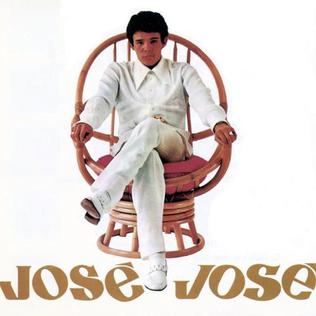
El Triste is the title of the second studio album released by Mexican singer José José in 1970.
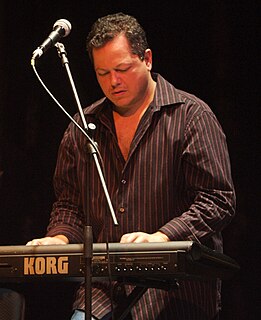
Israel Tanenbaum-Rivera is a pianist, music producer, composer, arranger and audio engineer who has produced more than 50 albums and participated in over 100 recordings.
Enrique Mario Francini was an Argentine tango orchestra director, composer and violinist who played in various tango ensembles including the Orquesta Francini-Pontier and Ástor Piazzolla's Octeto Buenos Aires.

Pedro Ipuche Riva was an Uruguayan composer of classical music. According to the catalogue by the Uruguayan musicologist Elsa Sabatés in Músicos de aquí, Vol 4 he wrote 150 compositions, including 6 symphonies and 2 operas.
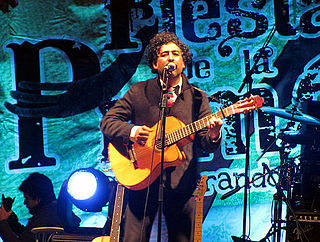
Manuel García is a folk-pop Chilean singer-songwriter and guitarist. He has won several awards and has twice received the Chilean National Music Prize, awarded by the Chilean Government.
Sonora Palacios is one of Chile's oldest tropical orchestras. Formed in the early 1960s, the group is one of the main exponents of Chilean cumbia and were pioneers of the style. They were the first Chilean band to record cumbia and are widely recognized for establishing the popularity of cumbia in Chile.
Puchito Records was Cuba's second independent record label. It was founded in 1954 during the mambo and cha-cha-chá explosion of the 1950s. Many of its recordings, produced by its founder Jesús Gorís (1921–2006), became instant hits. Cuban music styles represented in its discography include danzón, güajira, son cubano, son montuno, cha-cha-chá, guaracha, guaguancó, Cuban bolero, Cuban rumba, mambo, new flamenco, and Zarzuela. Other styles include farruca, merengue (Dominican), Ranchera (Mexican), nueva canción (Mexican) ... styles from Spain include cuplé, pasodoble, and flamenco. The ensembles range from studio orchestras to jazz combos to big bands to charangas.

Salsa Big Band is a studio album by Panamanian singer Rubén Blades and Roberto Delgado & Orquesta, released on 29 April 2017 by Rubén Blades Productions. After the release of Son de Panamá in 2015, also recorded with Delgado & Orquesta, Blades decided to record another album with them, on which Blades included eleven songs. He had previously recorded nine of the songs, and two were covers of songs written by Luis Demetrio and René Touzet. Delgado was the producer for the album. Blades' principal inspiration for the album was his admiration for the work of Puerto Rican performers such as Tito Puente, Tito Rodríguez and Willie Rosario, and the Big band sound of the 1950s.

